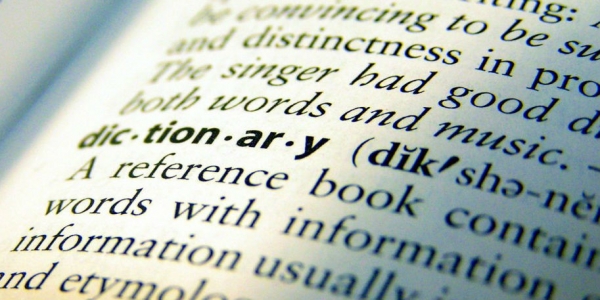Tutors need to understand that learning to use the dictionary is a complex process requiring specific knowledge and regular practice. Every session with a student should include some time for dictionary work.
- Know the purpose for which you require the dictionary:
Is it for checking the spelling of words only?
Is it to know the meaning of the word?
Is it to find a different word with a similar meaning?
Answers to these questions will affect the student’s choice of the dictionary (a spelling dictionary, a regular dictionary, a thesaurus
2. Familiarity with the alphabet and knowing the sequence of letters can be helpful for students.
If students don’t know the alphabet or are not keen to learn it, then have the alphabet written out clearly on a card as a reference and keep it on the table while you work and or as a bookmark for your dictionary.
A B C D E F G H I J K L M N O P Q R S T U V W X Y Z
A b c d e f g h i j k l m n o p q r s t u v w x y z
3. Understanding that words are arranged alphabetically in the dictionary.
4. Knowing the range of possible and probable spelling of the same sounds.
For example, the letters ‘f’, ‘ff’, ‘ph’ and ‘gh’ can sound like ‘f’ and ‘s’, ‘sc’, ‘c’ and ‘ps’ all sound like ‘s’ in certain words.
5. Know the abbreviations used in a dictionary and their meanings.
For example, adj for adjectives.
6. How to scan for a single word on a page of entries rather than read the whole page in detail.
7. How to use the guide words to help the student find the right page.
Choosing a Dictionary
There are a number of things to consider when choosing a dictionary. Students should be encouraged to use the different dictionaries available in their scheme before choosing one with which they feel comfortable.
Consider the following points when helping students to choose a dictionary:
- layout (for example print size or too much densely packed information),
- number of words (it can be frustrating to use a dictionary with a very limited word bank),
- specific purpose (for example do I want spellings, meanings, derivations or synonyms?),
- comprehension (are the definitions written in language that is easily understood?),
- pronunciation of difficult words (is this done in an easy to understand way?).








